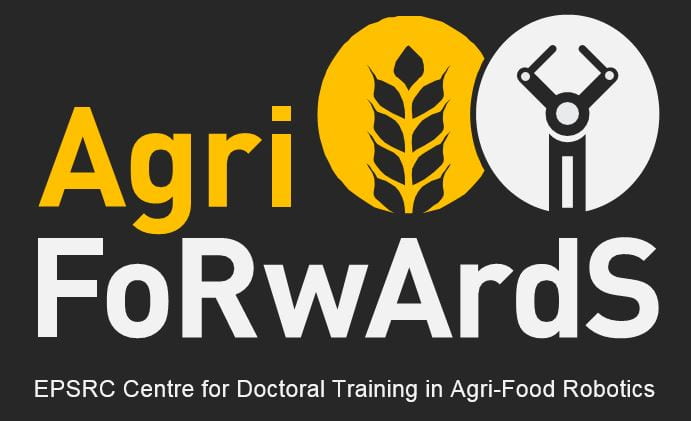In just a few days’ a brand new Cohort 4 will be joining the AgriFoRwArdS CDT. This is an exciting time and the new cohort have a fantastic year ahead to look forward too. To help ease the transition into a new University, but also into the AgriFoRwArdS CDT, we thought it would be good to share a few useful hints and tips from Cohort 3.
There is no particular order to these tips but hopefully they go a little way to make sure everyone settles in as quickly as possible. This blog is a companion piece and augments the student led live Cohort 4 Introduction event that took place a few weeks’ ago where the group discussed the overall MSc, how the CDT interacts with students and what to expect, to what living in Lincoln is like. Thanks to all those that attended that event!
Don’t be afraid to ask questions.

Professor Marc Hanheide, AgriFoRwArdS CDT Director, shares one of the most important points:
“Ask, ask, ask” (and don’t just assume).”
Alongside all of the new experiences you will be getting inside the CDT, there are so many opportunities that exist outside and around AgriFoRwArdS. The CDT sits within a larger research group and events and activities that take place within Lincoln Agri Robotics (LAR) group, or Lincoln Institute for AgriFood Technology (LIAT), to name a few, can all broaden your first year. Additionally, events and away days can be catered to your interests so don’t hold back sharing what you would like to see. These can be to fill in knowledge gaps or introduce you to new technologies. A couple of good examples are the MTC Robotics in Industry Training Day and Cambridge Algal Innovation Centre away days.
Try not to get overwhelmed.

Cohort 3 student, Nikolaos Tsagkopoulos, shared his one piece of advice would be to:
“Not to get overwhelmed by the load of coursework. Everything is manageable in the end, and it is way more important focusing in the lectures and the lectures’ resources (books ) rather than in the final grade a coursework could give you. That would save time in the long term”
Even those coming from previous studies can find starting an MSc at a new University daunting. For those that have come from industry or had some time away from education, sometimes the feeling of getting back into the swing of ‘how to learn‘ can be a big deal. Then, adding assignments and other deadlines onto it can feel overwhelming. This generally happens when all the assignments are released an it has only been a few weeks since you started the course! Don’t fret! It is all manageable, and there is plenty free time to have fun, take a break as well as handing your best work! So don’t worry!
Get organised.

Cohort 3 student, Rachel Trimble shares a useful tip when starting to organise your reading materials and assignments:
“Get a reference manager!”
Tools such as Zotero, RefWorks, EndNote, and Mendeley, are all excellent ways to organise and annotate any references you wish to keep. One of the central parts of structuring your work is remembering what you have already read and these tools provide a great way to help with this. Also, with your University of Lincoln account you will get access to several of these for free, such as RefWorks and EndNote. Check out the University guide to reference managers for more info. If you wish to use LaTex for your assignments (which is highly advised), then each of these tools will also work as well as others such as JabRef.
Try something new.

Cohort 3 student, Garry Clawson shares his best tip:
“When possible, try as many new things as you can. If this means writing a blog, then give it a go. If you have always wanted to try and write an academic paper, then try that too. Many of the most enjoyable things I have been part of have been by volunteering for new experiences. My favourite have been events that help others or are done as a team. I really enjoy seeing others have success, no matter what it is in.”
If there is something that you have wanted to try then one of the best times to do it is at the very very beginning of the academic year. This could be joining a new society, starting a pod cast, getting involved in volunteering, or participating in outreach activities. The AgriFoRwArdS CDT has a dedicated fund available for those wanting to support outreach and dissemination and will award £100-1000 to support such events.
Although these tips may seem obvious at first, knowing where to start can be daunting in itself. The CDT provides a Teams channel that everyone is welcome to post on and ask questions. There is a huge breadth of knowledge within the cohorts so if there are any questions, please post them and they will get answered very quickly. For all other questions the fantastic Kate Smith and April Walker are always available to signpost and offer guidance.
Do you want to get involved in the CDT?
If you are interested in learning more about what we do and if you share a passion for agriculture and technology then go to our AgriFoRwArdS CDT website to see more about our research, how you can be involved and how to apply to be a student in the program.

